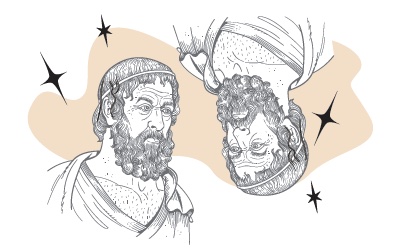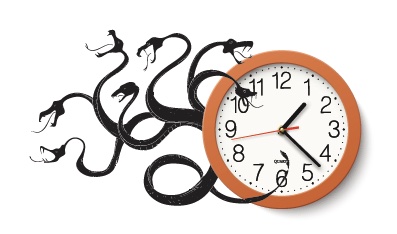Why Lessons from Ancient Rome Matter in a Modern World
A UF classics professor explores the timeless lessons we can learn from the Eternal City
A large military presence, the rise and fall of emperors, complex architecture, and the spread of the Latin language may come to mind when one hears “ancient Rome.” The civilization grew from a small town in central Italy in the eighth century B.C. into the most powerful empire in the world — until its fall in the fifth century A.D. Despite being composed of the toughest leaders and smartest engineers, the core of its society was rooted in humans just like us.
JENNIFER REA, professor and chair of the Department of Classics, investigates connections between ancient Rome and modern science fiction and fantasy. She studies legendary figures in both antiquity and modern popular media, who often reflect common anxieties, beliefs, and hopes for the future.
Through literature and creative works, writers of this time expressed their views and curiosities about society — a society that experienced violence, war, and suffering just as ours does today. According to Rea, if you just watch the news, you can see how we are becoming increasingly anxious about our future. Looking to the past, we see communities in antiquity also worry about poverty, war, and international relations.
Rea believes we need informed individuals who have studied the world’s history to learn from the triumphs and tragedies of previous societies, which could help us understand and make positive changes to our ever-evolving world.
“From examining societies that rose and fell, we can better understand how we got to who we are today,” she said. “You learn empathy and how to envision the world you want to live in.”
THE FAULT IS (NOT) IN OUR STARS

Oedipus Rex by Sophocles inspires thought-provoking questions about how much control we have over our life choices and destinies. It’s personal for Rea: A fleeting, chance encounter on a train in Italy led to her parents’ marriage — but had they not taken action to exchange addresses, the relationship would not have blossomed.
IF THERE’S A WILL, THERE’S A WAY

Virgil’s ancient Roman epic, Aeneid, shares the story of war refugee Aeneas, who flees the burning ruins of his city and founds a new one. The poem raises questions about how societies recover from civil war and how they reimagine their identities as they rebuild and recover. When all seems lost, we can seek and find new beginnings.
GOOD THINGS TAKE TIME

In the classic story Labors of Hercules, the Hydra is a terrible monster with numerous heads. Each time one head is cut off, two more would appear. Hercules finally defeats the Hydra by patiently cutting off each head and having his nephew cauterize the wounds. Perseverance and hard work helped Hercules accomplish his task — something we can all practice in our daily lives.


